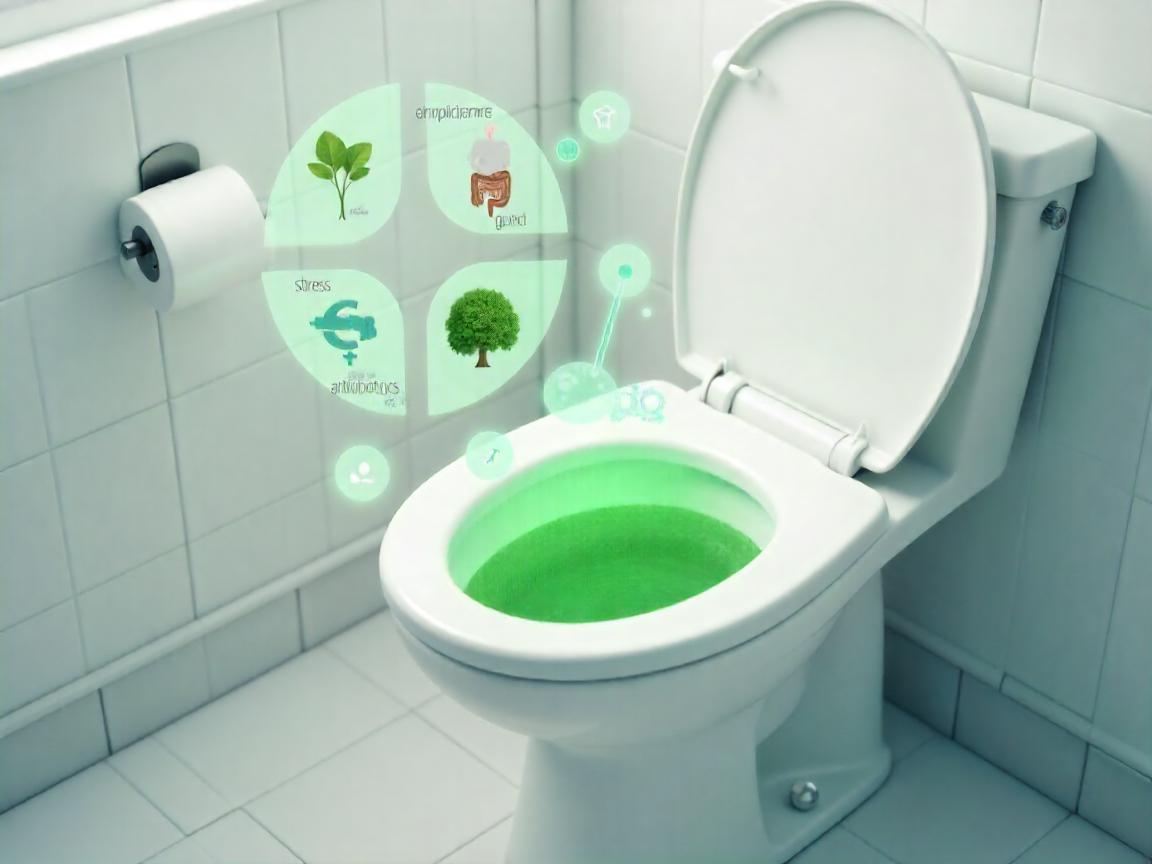
A Shade of Concern
All right, we are being honest, no one wants to discuss sh-t, but everyone does. And when your normal bathroom visit becomes one of horror at green feces, it’s impossible not to panic. You may look into the bowl and wonder Is this normal? Did I eat something weird? Am I sick? I can recall one client, a 29 years old developer from Austin, texting me at 7am with a photograph and a single caption: “This spinach… or something worse?” Turns out, green stool is more prevalent than many of us imagine, and very often far less sinister than those of us who worry end up imagining. But sometimes, it is your body raising a mild red flag.
Your Gut’s Color Palette: What does Brown mean and why do Green happen?
If you are healthy, your faeces are a brown colour due to a chemical called stercobilin, which results from the breakdown of bile —originally a greenish-yellow fluid produced within your liver — while it sits in your colon. It’s a complicated ballet of bile, bacteria and digestive enzymes. But by the time that dance picks up the pace, misses a step, or incorporates some new ingredients (medication, strange food additives and the like), the color can shift. Based on a 2024 Mayo Clinic report, about 15% of ER patients who complained to have stool-related complained about having green (or more) oddly colored stool with a shocking palate – 90% were diet-related, not disease-related.
Your Diet Reveals Your Feces (And What You Are)
One of the least studied perpetrators of green stool? Your plate. If your most recent meals featured huge amounts of spinach, kale, matcha, spirulina, or even Ironman gummies, green output is spot on. Social media fads such as chlorophyll water, promoted through the likes of @wellnessbylola, are also nex big things. In an April 2025 Healthline article, nutritionist Natalie Rizzo described how chlorophyll supplements do more than stain stool – they may also interfere with iron, boosting the greenness of stool.
When Green Means Go… Too Fast
Green feces may also mean that your intestines are too quick. When food moves too quickly, as it does in diarrhea, bile has no time to oxidize and turn brown. This is what Dr. Samantha Lee, a gastroenterology doctor at Mount Sinai, spoke of in a March 2025 interview with Everyday Health. We observe this in patients that are fighting stomach bugs, food poisoning or stress flares of IBS. Bile leaves the body as it is, in green.”
Consider the case of Trevor, who is 42, and a flight attendant who caught norovirus during a layover in Barcelona. He told people about his stool during the infection – “neon green pudding”. His experiences written in a Reddit health forum and quoted in a CDC update on norovirus trends demonstrate how infections can completely hijack digestion—and color output.
Medicines, Micro’. Biomes, and the Enigma of the Green Tone.
This is where it gets really interesting now. Antibiotics, iron pills and laxatives can change not only your digestion process but also your gut bacteria. In a 2024 paper published in Gut Microbes was described how antibiotics provide a temporary change in the gut microbiome landscape for an hour by diminishing bacteria essential for bile breakdown. Likewise, iron supplements— particularly in large amount— will color stool dark green or black.
Stress still has a sneaky role to play. In a high stress environment, your sympathetic nervous system can impinge on digestion and create irregular bowel functions & incomplete bile processing. I have seen this in quite a few clients with stressful jobs and irregular eating habits – one of their first physical symptoms before larger gut issues appeared was green stool.
When To Worry (and When Not to Worry)
Let me make that clear – most green feces is not an emergency. But, it may as well be a breadcrumb in the larger health puzzle. When it lasts for more then three days, is accompanied by stomach cramps, fever, lethargy or sudden weight reduction, it is time to see your doctor. Dr. According to a microbiome researcher from Stanford, Andrew Miller, it all came down to excrement in a recent interview with Wired last month. “Your gut doesn’t whisper. It talks. Green stool may just be the beginning of that conversation”.
Look out if you also see:
- Persistent diarrhea or pain
- Unexplained fatigue
- Blood or mucus in stool is not common.
- Recently started a new medication
- Multiple dietary changes or supplements
Making note on your food and symptoms through a journal or application like Cara Care or MySymptoms can help detect patterns and dismiss possible triggers.
Conclusion: Listen to The Hunch Your Gut is Giving You
We are fixated on calorie count, macros, and exercise regimen but ever did we pause to consider what our stool is telling us about our state of health? Fact is, having green feces isn’t embarrassing. It’s a natural signal. Sometimes, it says: “more kale than necessary” and sometimes it says: “hey, something’s off”.
Personally, in my view, our digestive system is our most under-appreciated early warning system. Then the next time you see green in the bowl, don’t freak out. Just pause. Think about what’s changed. And maybe, begin to listen a bit more closely to the parts of your body not scared to be so frank even in color.